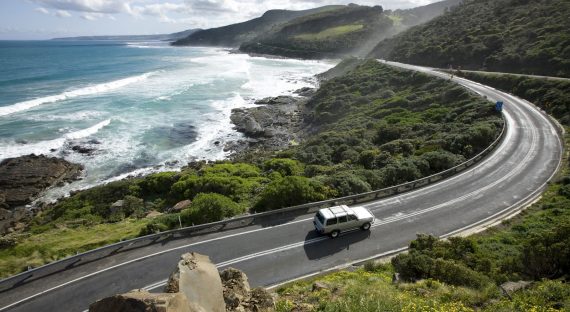
7 Things You Need to Know When Going on an Australian Road Trip
Once Australia enters its peak travel season, millions of tourists start pouring from North America, Europe, and other parts of the world. They are in the search of new adventures, while Australia is among the top countries that are perfect for long drives. From the scenic rugged coastlines to the Western outback, and the red centre as the heart of the continent, Australia has a lot of road trip routes to offer that would exhaust even a passionate adventurer.
If you’ve decided to take a road trip through Australia, there are some things that you should know before you set off.
1. Summer is different across the land
The first advice you’ll receive is – wear a lot of sunblock wherever you are. Summer in Australia is amazing, and each of the big cities provides a different kind of summer. The summers in Hobart are cold, in Brisbane are humid, while dryness rules in Perth. If you want to travel to different countries, know that every city offers something different, and you should be prepared.
2. The sun burns
Because of the land’s proximity to the ozone layer hole (which prevents the UV rays from being filtered), Australia is among the world’s capitals when it comes to skin cancer. The hole in the ozone means that you can get burnt easily while out (even if the weather is cool), as the sun poses more health risks due to being significantly higher. Cover up more skin with clothing or prepare sunblock to prevent sunburns.
3. Speed limits are strict
In Australia, the transport department is very rigorous on speeding and its fines, while in most countries drivers are given some leeway (let’s say about 10% of the limit prescribed by law). It will cost you about AU$160 if you exceed the speed limit by less than 13 km/h. Traffic cameras and police are everywhere, so be extra mindful of your car’s speed when you’re driving around the city. Avoid receiving single fines, because they can easily pile up, which will be a serious slap over your wallet. Get a GPS that can warn you when you exceed the speed limit. In case your car breaks down while in a remote part of the country, you can use the service of mobile mechanic to service you on the road.
4. There’s enough camping sites
You will find camping sites available with facilities on site, if you’re planning to road trip for a few days. Even if you’re new to camping out, there’s no reason to worry much about a place to rest. Most camping sites in Australia would provide charging points (to charge your phone, laptop, and other electronics) at an extra price, and toilets. These spots are perfect sites to rest for the night, in case you’ve been driving for long periods of time, as most of them would provide just the basics at a low cost. Just load yourself with some food before you park at a camp site, and you’re good.
5. If you don’t know how to go offline, you’ll learn now
Unlike cities like London, Madrid, or Los Angeles, where the Internet is omnipresent, the internet in Australia is expensive and slow. If you can’t bear not having an online connection, the best solution is buying a hotspot that you can take with you wherever you go. These hotspots will provide connection to the Internet and maybe serve as your phones portable charger (depending on the model).
6. Australians love coffee and alcohol
Australia is one of the world’s major manufacturers and exporters of beer and wine. So, they love their drinks and it’s obvious to see why. However, Foster’s Lager doesn’t enjoy such widespread success in Australia as it does around the world. Australians have many locally brewed beers like XXXX or VB (Victoria Bitter). If you’re not a beer drinker, head to any of the Australian wine valleys to taste some really delicious and quality wines. Australia also knows how to make good coffee, so enjoy sipping whatever your drink of choice is.
7. Border control is strict
Bringing certain things into the country is prohibited. The border control will stop you if you’re carrying meat, vegetables, fruits, eggs, seeds, plants, skins, feathers, or medication that wasn’t declared by your doctor in writing, firearms, weapons, and protected wildlife.
The last thing is a common myth debunked – no, there’s no wildlife everywhere you go, nor is everything lethal. Koalas and kangaroos are not roaming the cities’ streets freely, but if you want to see these animals, you will have to head to a wildlife park or visit a zoo. Not every animal is lethal, and in case it is, the chance it will kill you if pretty minimal.